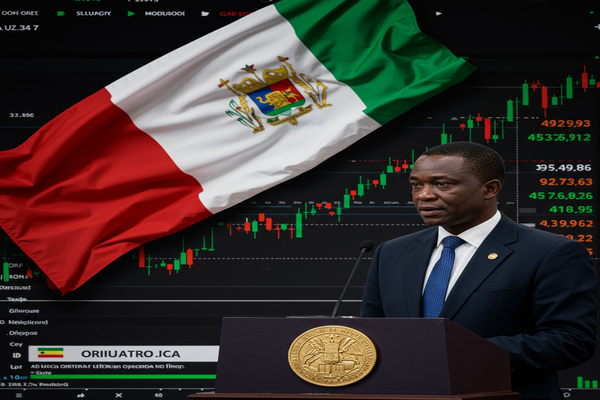
Aging presidents test youth pressure across Africa. Cameroon’s President is 92 and Ivory Coast’s leader is 83, with Paul Biya re-elected for an eighth term while Alassane Ouattara remains the heavy favourite in the Ivory Coast vote. Tanzania also heads to the polls, and Gen Z is pushing for change and accountability. This matters now because recent election outcomes and upcoming ballots create short-term political uncertainty, while long-term demographic pressures raise questions about governance and reform. Globally, investors will watch emerging market flows in the US, Europe and Asia, while locally citizens and markets will weigh continuity against demands for generational transition. Compared with past cycles, long-serving leaders and rising youth activism increase the potential for sporadic volatility in regional assets.
Market context and immediate sentiment
How political continuity and youth unrest may alter risk appetite
Markets typically react to political certainty and to sudden shifts in public sentiment. The confirmation of longstanding incumbency in Cameroon following Paul Biya’s re-election signals continuity in policy for that country. Meanwhile the Ivory Coast race, where Alassane Ouattara is the heavy favourite, suggests a likely extension of the current policy course there too. Whether markets see that as stabilising depends on how investors interpret governance, rule of law and policy credibility.
Short term, traders may price in higher volatility for regional assets as ballots and public protests around youth demands unfold. Local currencies, sovereign debt spreads and equities in West and Central Africa could show uneven moves as liquidity responds to headlines. International investors based in the US and Europe may pull back briefly from riskier Emerging Market positions and seek safer assets, while Asia-based funds will watch commodity flows tied to African exports.
Regional outlook
Continuity in power and the pressure for generational change
Across West and Central Africa, an older political class governs populations that skew young. Cameroon now has a 92-year-old president, and the Ivory Coast leader is 83. That age gap between rulers and the electorate has been a recurring theme, and it fuels calls for accountability and reform from younger voters. In the immediate term, continuity can reassure some foreign investors about policy predictability. However long term, sustained demands from Gen Z for jobs, transparency and better services could drive gradual policy changes or political realignments.
Market participants should consider that policy continuity can coexist with social unrest. Governments seeking to preserve stability may deploy fiscal or monetary measures to calm markets and citizens. Meanwhile oppositions and civic movements could increase pressure on institutions, creating episodic uncertainty that regional capital markets must absorb. Historically, countries with entrenched leadership tend to see slower institutional reform. That trend matters to investors focused on rule of law and regulatory clarity over multi year horizons.
Global spillovers
What the US, Europe and Asia will likely monitor
Global markets will interpret political developments in Africa through several channels. Commodity prices can move if supply chains face disruption. International credit conditions for emerging markets can shift if risk premia rise. Portfolio managers in New York and London will watch headlines for any sign that political events could affect corporate earnings for firms with African exposure. In Asia, liquidity decisions and trade flows may adjust in response to perceived changes in demand for raw materials or agricultural products.
In addition, sovereign risk perceptions can influence global fixed income benchmarks for emerging markets. If investors see prolonged instability or weakening governance, demand for higher quality assets can increase, creating pressure on spreads. Conversely, clear outcomes and orderly transitions tend to support emerging market allocations. Investors and strategists will balance short-term headline risk against the longer term fundamentals of growth and demographics in the region.
Trading implications and scenarios for the session
The near term themes to watch without making forecasts
For the upcoming trading session, expect attention to be focused on headlines out of West and Central Africa. News flow that suggests protests, contested results or disruptions to logistics could provoke immediate moves in regional currencies and equities. Conversely, confirmation of orderly processes and reassurances from policymakers may calm traders and support modest risk appetite. Market participants will likely monitor cross asset indicators that historically react to political news, including commodity prices, sovereign bond spreads and flows into exchange traded products tracking emerging markets.
Traders may also track liquidity conditions in global markets. When headline risk rises, liquidity often tightens, amplifying price moves in smaller markets. That effect can produce sharper intraday swings in African local markets while larger global markets absorb the noise more smoothly. Meanwhile, correlations between regional assets and broader emerging market indices could tighten or loosen depending on the perceived systemic importance of the events.
Finally, analysts will watch official statements from governments, central banks and international institutions for clues on policy responses. Fiscal or monetary measures intended to reassure markets can be decisive for short term sentiment. In contrast, prolonged uncertainty around political succession or legitimacy can weigh on longer term capital inflows and credit assessments. Market participants should therefore treat the upcoming session as one where news flow will matter more than usual, and where quick reassessments of risk may follow any surprise developments.
Overall, the combination of aging leadership, active youth movements and multiple electoral events across the region creates a mix of immediate headline risk and longer term governance questions. That dynamic is relevant today because recent election results and pending polls have already set expectations that traders and investors will test in the next trading session. Watch for volatility, monitor official communications, and consider how short term headlines interact with deeper demographic and institutional trends in the months ahead.












